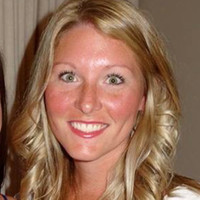Medically reviewed by Meghan Maynard Harlan. Last updated on July 11, 2025
General Illness Information
Common Name: BED-WETTING
Medical Term: Enuresis
Description:
Involuntary urination during sleep in children 5 years of age or older. It is 3 times more common in boys than in girls. The occurrence of bed-wetting in children is: 15% at age 5, 10% at age 6, 7% at age 8, 3% at age 12, and 1% at age 18.
Bed-wetting is usually caused by slow maturation ,but it is sometimes accompanied by sleep-walking and night terrors.
Causes:
In most cases, the cause of bed-wetting is unknown. In only 1 to 2% of the cases, there is an associated physical disorder. The following are the most common causes or theories: Underlying illness, such as diabetes or a urinary-tract infection; A small or weak bladder that cannot hold one night’s urine production; Psycho-pathologic problems caused by stress or separation from the mother or arrival of a new sibling; Child who is a deep sleeper.
Prevention:
No effective preventive methods known. Show your child love, support and understanding for this problem.
Signs & Symptoms
Bed-wetting at night (occasionally during the day). This is not significant until a child is older than 6.
Risk Factors
- Diabetes.
- Urinary-tract infection.
- Family history of bed-wetting (44% occurrence if one parent was bed-wetter, 77% occurrence if both parents were bed-wetters).
- First born child.
Diagnosis & Treatment
General Measures:
- Counseling and behavior therapy- both child and parent receive counseling and are advised that bed-wetting is quiet common and that it will resolve in time and that nobody should feel guilty.
- Protect the mattress with a heavy plastic cover.
- Provide the child with extra-thick underwear and pajamas. Discontinue diapers or plastic pants by age 4; they inhibit the child’s motivation to improve.
- Put an extra pair of underwear and pajama bottoms by the bed in case the child needs them during the night.
- Restrict liquids for 2-3 hours prior to bedtime.
- Have the child urinated before bedtime.
- Awaken the child to urinate after he has been asleep for several hours.
- If the child is old enough, he may be able to set the alarm clock to awaken himself and empty his bladder during the night.
- Reward the child for staying dry. Praise him and hug him.
- Use gold stars or happy faces to mark dry nights on a calendar if the child likes it.
- Respond gently to accidents. Don’t blame, criticize, restrict or punish the child who has wet the bed. This can cause him to give up, or lead to emotional problems.
- Follow instructions for any bladder-stretching or stream-interruption exercises or behavior-modification devices.
- Try alarms that are triggered by wetting. Reports indicate a 70% cure rate when using them. The only disadvantage is that the treatment works slowly. In most cases, the alarm can be removed afte 3 weeks of dry period.
Medications:
- Usually is not necessary for this disorder.
- An antidepressant (imipramine) or a prescription nasal spray (vasopressin) may be recommended if other methods fail and the family favors medical treatment.
- Imipramine is an anti-depressant medication that relaxes the bladder and tightens the bladder sphincter that blocks urine flow.
- Vasopressin or desmopressin is used as a nasal spray. This drug reduces the output of urine. It has few side effects but is expensive.
Activity:
No restrictions.
Diet:
No special diet. Encourage your child to drink as much fluid as possible during the day. Restrict the intake of liquid 2-3 hours before bedtime.
Possible Complications :
Psychological and emotional scars that may affect the child’s personality for years.
Prognosis
Bed-wetting may continue for several years. Laboratory tests may be conducted to rule out urinary-tract infections and diabetes as causes. If these are eliminated and your child is normal in other respects, consider your child’s bed-wetting represents a delay in maturing that will resolve with time.



